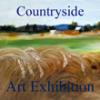Performance Studies International, call for participation at conference, Leeds, UK, and more
Marin Blazevic and Peter Eckersall, co-chairs of the newly established PSi
Working Group on Dramaturgy and Performance Studies, are announcing a call
for participation in the inaugural meeting of the group at the 18th PSi
conference in Leeds. We are inviting statements from PSi members on
dramaturgy and/in connection with performance studies. Colleagues might
like to discuss topics including (but not limited to):
* common or diverse concepts of dramaturgy and Performance Studies,
* histories and vocabularies,
* local research interests,
* procedures and practices,
* organizational and institutional positions and perspectives.
Whether attending the Leeds conference or not, send us a paragraph of the
maximum 100 words on any of the themes, ideas, notions, arguments,
challenges or projects incited or overlooked by the Working Group rationale
(see below). The statements will be read, commented and discussed by other
participants at the group meeting and incorporated in the group manifesto
(in the manner of dramaturgical editing of the material into a new
composition).
Further activities of the working group will also be on the agenda for the
meeting in Leeds, including proposals for the program at the Stanford
conference in 2013 and out-of-conference activities. We invite your
comments about all or any of these points.
Please send your statements and suggestions to Marin Blazevic (
marin.blazevic@gmail.com) and Peter
Eckersall (eckersal@unimelb.edu.au).
Dramaturgy and Performance Studies Working Group
Chairs: Peter Eckersall and Marin Blazevic
We are pleased to announce the establishment of a PSi Dramaturgy and
Performance Studies Working Group to broadly consider the situation of
dramaturgy in relation to performance studies. It will open new
perspectives on dramaturgy that are not considered in theatre studies
contexts nor in cognate fields of research such as literary studies.
Meanwhile, it will also consider how the discipline of performance studies
has developed alongside and in connection with the revived interest in
contemporary dramaturgical practices. Starting our inquiries are the
questions:
What are the ideas and practices connecting performance studies
and dramaturgy?
Is performance studies dramaturgical and how does dramaturgy
(mis)perform in applying concepts and practices essayed within the
performance studies paradigm?
We anticipate that an investigation of theories and practices of 'expanded
dramaturgy' (Eckersall) and 'shifting dramaturgy' (Blazevic) are ways of
furthering our understanding about the nature of performance throughout
time and into the present, across the (virtual or real) spaces of
performance and inside culturally specific localities. Dramaturgy connects
artistic practices with politics and society and applies wider aspects of
knowledge to performance. It can articulate or otherwise organise and
constantly shift the elements of a performance event. Marianne Van
Kerkhoven calls this: 'learning to handle complexity . and feeding the
ongoing conversation on the work, it is taking care of the reflexive
potential as well as of the poetic force of the creation. Dramaturgy . is
above all a constant movement.'
Dramaturgy is arguably universally connected to the idea of thinking about
composition and vocabularies of performance but our understanding of these
varies and so does our understanding of dramaturgy itself. Thus, we aim to
consider questions such as: Can dramaturgy foster different ways of
communicating human experience? Does it create new forms of scripting, new
social dramas and experimentation? What are the limitations of the concept
of dramaturgy in performance studies? What are the limitations of
performance studies for dramaturgical thinking and practice?
The working group will develop laterally (shifting). Some of its attention
will address theories and other aspects of our work will be enabled through
workshop and practice-based activities. It will be open to wide
participation but will also be able to focus on projects and outcomes. The
Dramaturgy and Performance Studies Working Group will meet at the annual
conference and propose other activities and meetings at various times.
from Franklin Furnace
- Login to post comments


